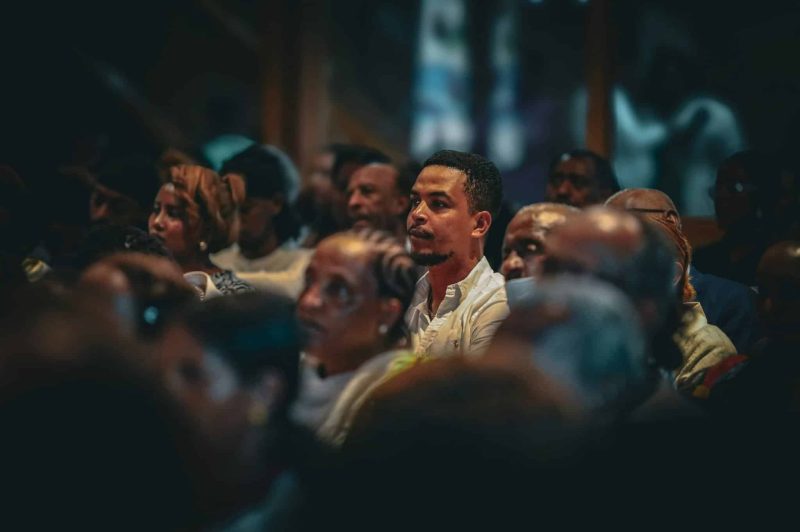The UK's Black and multi-ethnic Christian community focused magazine
Rev Ron Nathan delves into and rise of Black theology in the Black Christian community and why it’s a gift to believers of all nationalities and ethnicities
In the late 1970s, I walked into a well-known Christian bookshop in London and asked for a copy of Black Theology and Black Power by James H Cone. The young clerk looked at me, confused, and said, “I’m sorry, sir, we don’t carry books like that here. This is a Christian bookstore.”
That moment summed up a deeper tension: the belief that Black identity and Christian theology could meaningfully speak to each other was, for many, inconceivable. Yet it was from that very place of exclusion that Black Theology in Britain began to take shape.
A Theology Born of Struggle
Black Theology in the UK drew its early spark from African American theologian James Cone, who famously declared that “Jesus is Black”. His message: Christ identifies with the oppressed. British voices, such as Emmanuel Lartey, Robert Beckford, Anthony Reddie, Kate Coleman, Dulcie Dixon, and Bishop Joe Aldred, contextualised Cone’s work, giving theological shape to the experiences of Black British Christians. They challenged the silence of traditional theology and affirmed that Black life and Black culture matter deeply to God.
Decolonising Faith and Worship
At its core, Black Theology teaches that being Black and being Christian is not a contradiction; it is a divine alignment. It challenges Eurocentric theology that spiritualises suffering and ignores structural injustice, offering instead a Gospel that liberates here and now. This message was both empowering and disruptive for many African and Caribbean churches in Britain, which had inherited a missionary Christianity that focused on individual salvation while discouraging engagement with empire, race or identity. Still, Black Theology gradually began influencing how these churches preached, worshipped and practised faith.
From Lecture Hall to Church Life
Initiatives like the Black Light Course, led by Ascension Trust since the 1990s, brought Black Theology to pastors and lay leaders alike. Institutions such as the Queen’s Foundation also carved out space for its academic development.
In mission, caring for the vulnerable, challenging racism, mentoring youth, and engaging in political advocacy became central to spiritual life, not peripheral. From its beginning, Black Theology in Britain was part of a wider conversation across the African diaspora. The founding of Black Theology: An International Journal in 1998 marked a turning point. Edited by Anthony Reddie, the journal became a hub for theologians like Cone, Dwight Hopkins, Katie Geneva Cannon, Kelly Brown Douglas, Musa Dube, Mercy Amba Oduyoye, and Rev Dr Evie Vernon. These international connections, fostered through symposia, exchanges, and shared publications, confirmed that Black Theology is both local and global – a movement shaped by context, but united by common struggles and hopes.
Still on the Margins?
Despite its transformative potential, Black Theology remains marginal in both Black and White church spaces. It is still underfunded, misunderstood, and often excluded from formal theological education. Many seminaries treat it as an elective, not a core discipline. Yet, where it is embraced, it equips the Church with tools to name injustice, affirm dignity, and imagine God’s presence in the everyday. It encourages a contextual, resilient and liberating faith that speaks directly to today’s challenges.
A Gift to the Whole Church
Black Theology is not just for Black Christians. It offers White Christians a call to examine privilege, hear silenced voices, and reconnect with the Gospel’s radical, justice-oriented message. By naming difficult truths, it invites the entire Church into a deeper, more authentic discipleship.
Looking Forward
A new generation of Black British Christians is emerging – confident in both their faith and their identity. Figures like Anthony Reddie and Robert Beckford have pushed the boundaries of theology into public life, intersectionality, and multimedia expression. African-led churches in the UK have also brought fresh spiritual energy and cultural affirmation to Black Church life. Though often not explicitly aligned with liberation theology, their focus on healing, empowerment and resilience mirrors its core values.
Conclusion: Black History, Black Faith
As we celebrate Black History Month, we remember that Black Theology is not just a story of the past, but a living, prophetic gift to the Church today. It was born in struggle, but it speaks of hope. It affirms that our Blackness is not a burden; it is a blessing. And while it remains on the margins, its fire still burns.
REV RONALD A NATHAN
An elder of the African Methodist Episcopal Zion Church and Global Politics Editor for The Star of Zion newspaper
Your email address will not be published.
Currently you have JavaScript disabled. In order to post comments, please make sure JavaScript and Cookies are enabled, and reload the page. Click here for instructions on how to enable JavaScript in your browser.
Read the latest digital issue of Keep The Faith magazine here!
Please select how we may contact you:
You can change your mind at any time by updating you preferences. We do not share your data.
We use MailChimp as our marketing and processing platform. More information is available here.
